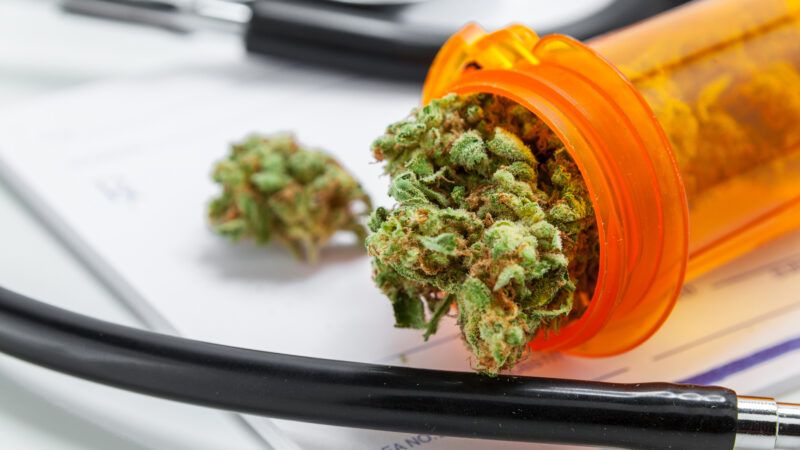Florida Bans Medical Marijuana in All State-Licensed Rehabs and Sober Living Houses
Some patients, especially those with opioid addictions, could actually benefit from access to medical marijuana.

Last week, Florida legislators passed a law that will narrow the state's medical marijuana eligibility. While the change might seem marginal, it's a step in the wrong direction.
Florida Gov. Ron DeSantis, a leading contender in the 2024 Republican presidential primary, signed S.B. 210 into law. The bill pertains to substance abuse treatment programs licensed by the state, like rehabs or sober living residences. It adds language to Florida law that beginning in 2024, licensed treatment facilities must enforce "a prohibition on the premises against alcohol, marijuana, illegal drugs," and prescription medications not prescribed to the person taking them. The text further clarifies that it "includes marijuana that has been certified by a qualified physician for medical use."
Medical marijuana use in an addiction treatment or sober living facility is controversial. Cleveland House, a South Florida sober house, states on its website that if one resident is smoking pot, it could negatively impact another resident's recovery. But studies increasingly suggest that marijuana can help alleviate symptoms of opioid addiction. Men's Tribal House, a sober living facility in Utah, actively incorporates medical marijuana use into the recovery plans of half its residents.
In 2016, more than 70 percent of Florida's voters chose to expand the state's medical marijuana program. Under previous state law, only patients with "cancer or a physical medical condition that chronically produces seizures or severe and persistent muscle spasms" qualified, and only for doses low in THC, the principal psychoactive component in cannabis. The 2016 ballot measure, later passed into law as S.B. 8, expanded eligibility to include a variety of conditions like Crohn's disease, post-traumatic stress disorder, and anything that caused "chronic nonmalignant pain."
DeSantis himself has given conflicting statements on the subject of medical marijuana. Last month at a presidential campaign rally, he bragged that his state's program provided access to veterans with combat-related injuries, but he continued, "It's very controversial, because obviously there's some people that abuse it and are using it recreationally."
Regardless of one's opinion on the wisdom of letting the newly sober smoke pot in treatment, the decision to allow it or not should be up to individual medical professionals, not the state.


Show Comments (36)